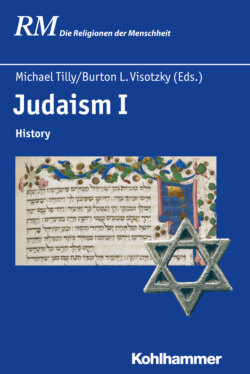Читать книгу Judaism I - Группа авторов - Страница 39
На сайте Литреса книга снята с продажи.
25 Halakhah (Jewish Law) in Contemporary Judaism
ОглавлениеDr. Elliot Dorff of the American Jewish University, Los Angeles, describes the changes that the Enlightenment brought to the authority of Jewish law, the legal theories of modern Jewish movements, and specific examples of moral and ritual issues shaped by Jewish law. He considers medical ethics, interpersonal relations, social justice, environmental ethics, dietary laws, and ways of marking the Jewish life cycle and calendar.
Jews were expelled from Western Europe between the thirteenth and fifteenth centuries. From then until the twentieth century, most of the world’s Jews lived in Eastern Europe and in Muslim lands. Jews in those areas were governed by Jewish law, enforced by Jewish courts, backed up by governments. When the Enlightenment philosophy of individual rights became the governing philosophy in Western Europe and America in the late eighteenth century, most of the world’s Jews did not live in such countries.
In the first half of the nineteenth century, all three of the modern Jewish movements—Orthodox, Conservative, and Reform—developed in Germany, each with its distinctive approach to how Jews should live. Now, Jews had to repair to the civil courts for justice, while marriage and divorce were subject to civil law. The early Reform movement maintained that Jewish law was authoritative only for the Jewish people living under Jewish rule in ancient Israel.
Rabbi Samson Raphael Hirsch, founder of Modern Orthodox Judaism, asserted that young Jews in Germany were not obeying Jewish law because they did not know much about it. He established schools for adult education, translated the Bible into German, and wrote books to describe and justify Jewish law. What is now called the Conservative Movement or »Masorti,« began when Rabbi Zacharias Frankel and his colleagues left the organization of Reform rabbis in 1845. They believed that Jewish identity is not solely a matter of religion and morals, but also of community. Their emphasis was to become important as Conservative Judaism took root in America and became a movement that focused on the communal aspects of identity, including commitment to Jewish law.
